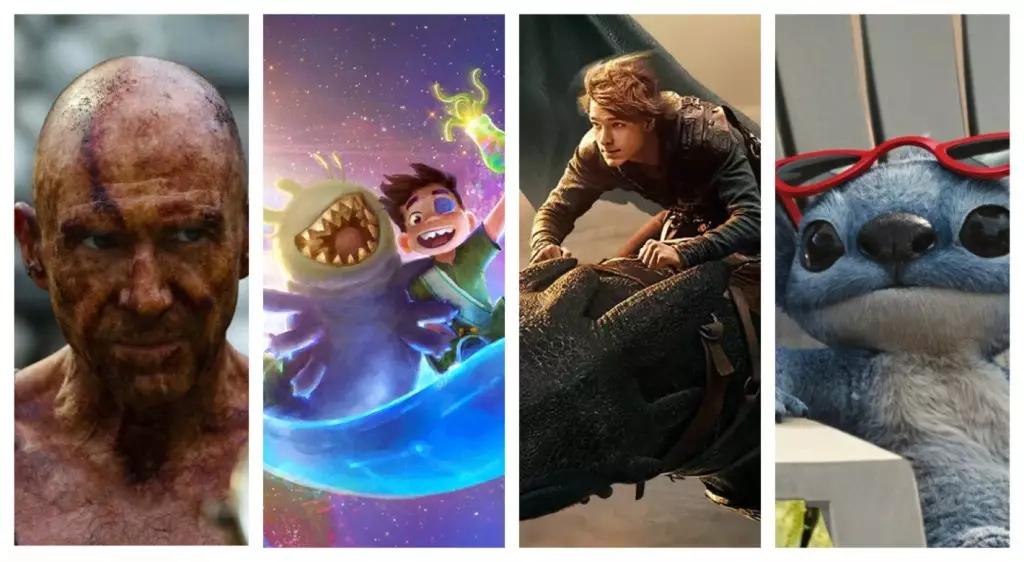In a cinematic landscape dominated by reboots and sequels, Danny Boyle’s highly anticipated film, *28 Years Later*, has made a thunderous impact, grossing an impressive $60 million globally during its opening weekend. The film, which marks a rekindling of interest in the zombie genre, has attracted both domestic and international audiences equally, each contributing $30 million to the overall box office. This new entry follows in the footsteps of its predecessor while simultaneously carving out its own identity in today’s competitive market.
Boyle’s adept direction and poignant storytelling have paid off magnificently, with this weekend’s box office performance surpassing prevailing expectations. *28 Years Later* garnered 76% more at the international box office than recent auteur-driven horror offerings like *Sinners*. This growth is indicative of a resurgence in the horror genre, especially for projects helmed by visionary directors. The film’s success serves as a stark reminder that innovative storytelling can still captivate audiences and drive box office results significantly.
Market-specific Triumphs
The film has demonstrated strong performances across various international markets, with the UK opening at number one with a compelling $6.4 million. This is followed by notable figures in Mexico and the Middle East, accruing $2.7 million and $1.8 million, respectively. Other markets like Australia, South Korea, Germany, and France contributed similarly encouraging numbers, showcasing the film’s broad appeal. Each of these opening figures reveals a strong willingness from international audiences to embrace quality horror, particularly during challenging periods for theater attendance amid ongoing market fluctuations.
One can also draw comparisons between *28 Years Later* and other horror franchises, such as *A Quiet Place: Part II* and *Evil Dead Rise*. The new film’s opening performance outshone these established titles by a significant margin, suggesting that audiences are hungry for fresh narratives in a genre that has recently seen episodes of fatigue. It seems that Boyle’s reimagination of this post-apocalyptic world has effectively captured audience interest in ways that more traditional horror franchises may have struggled to maintain.
Disney’s *Elio* Struggles to Find Its Footing
In stark contrast, *Elio*, a Pixar/Disney offering, debuted to a disappointing global intake of $35 million. The five-number opening for this animated adventure reflects a considerable gap in audience engagement when contrasted with *28 Years Later*. While there has been positive audience feedback and buzz on social media, the numbers indicate a missed opportunity, compounded by the inconvenient timing of school holidays in various territories. This exposure issue highlights a pressing challenge for animated releases targeting younger demographics during periods when children aren’t available to view new films.
Despite the rich legacy of Disney’s animated features, the mixed reception of *Elio* hints at the complexities studios face in establishing new franchises. Although *Elio* climbed to a commendable No. 1 position in South Korea—a noteworthy accomplishment—the lackluster rollout in other markets underscores broader implications for Disney’s strategies. It serves as a reminder that the success of animated features hinges significantly upon timing, marketing, and brand attachment amidst a crowded field of cinematic releases.
Box Office Landscape: A Continual Evolution
Universal’s *How to Train Your Dragon* remains a chart-topper as it embarks upon its second weekend, accumulating a staggering global figure of $358.2 million. Demonstrating why it remains a formidable force in family entertainment, its impressive numbers speak volumes about the film’s ability to resonate with diverse demographics. Notably, its performance across international markets showcases an enduring affection for franchise films even amidst emerging new content.
The plight of *Elio* and the resilience of *28 Years Later* encapsulate the evolving dynamics of the box office, where the blend of innovative storytelling, director-driven narratives, and market strategy define success. As studios navigate these waters with their upcoming releases, the successes and failures seen this weekend will surely influence future decision-making regarding content creation and distribution strategies.
Ultimately, the box office is not merely a financial metric; it reflects the shifting tastes and interests of audiences in a world where cinematic preferences are continuously evolving. The emergence of *28 Years Later* as a horror blockbuster and the struggles of *Elio* remind us that quality storytelling can resonate powerfully, while also demonstrating that audience engagement, strategic timing, and interest can make or break a film’s success in today’s market.

